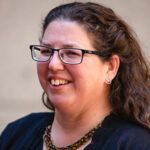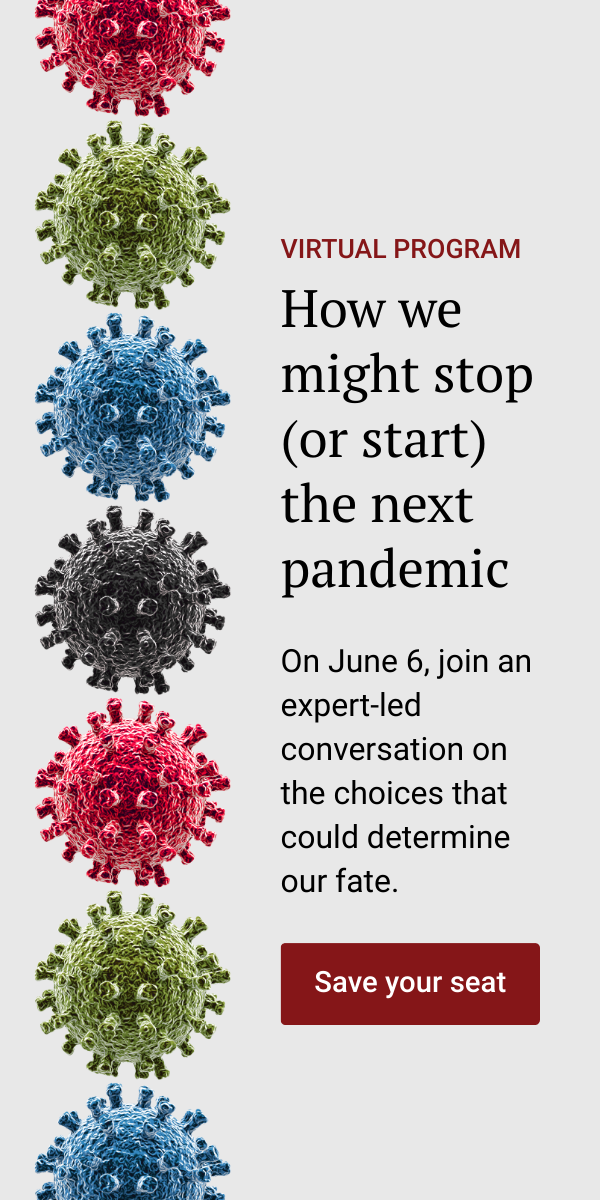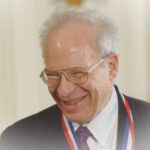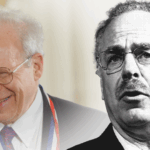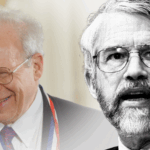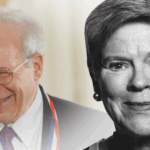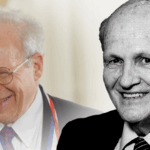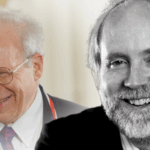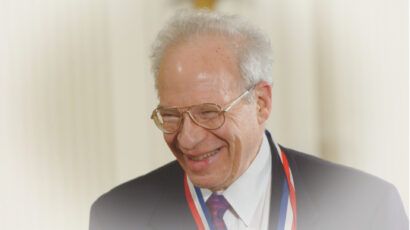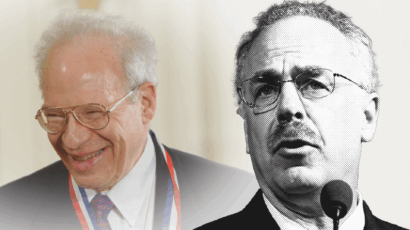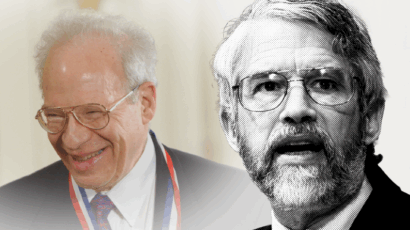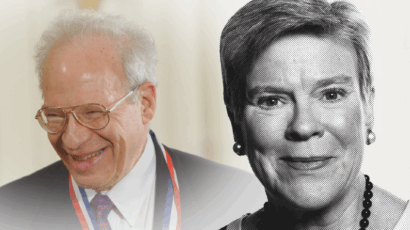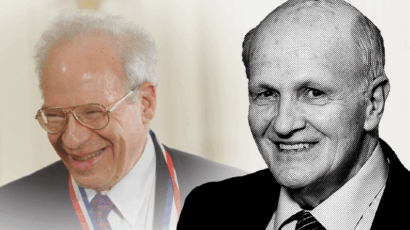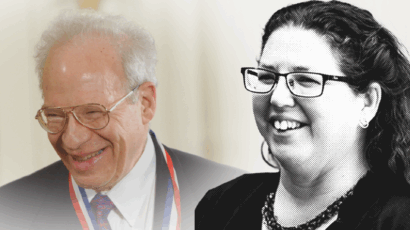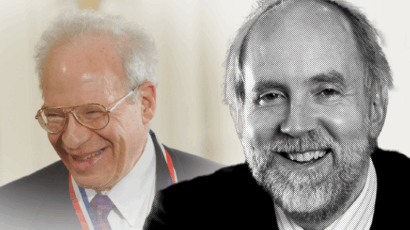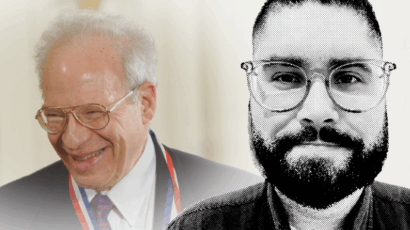Richard Garwin also championed science diplomacy with China
By Eryn MacDonald | May 23, 2025
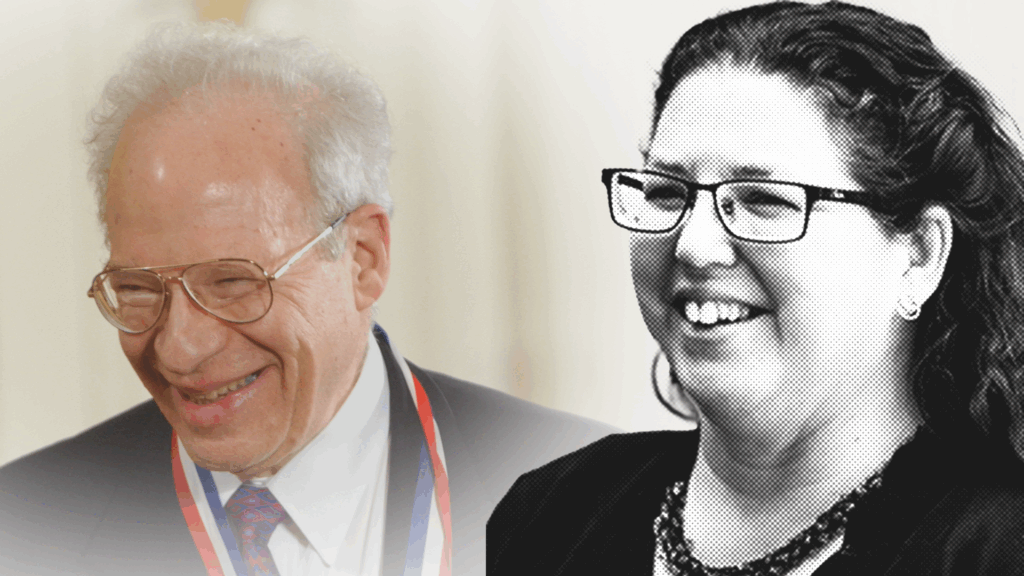
Editor’s note: This essay is part of a collection of appreciations of Dick Garwin.
Richard Garwin was a brilliant and indefatigable physicist whose career spanned seven decades. He is best known for building the first hydrogen bomb and for his many years advising the US government on defense and arms control issues. Obituaries have praised his outstanding achievements. What has been largely left out, however, is Garwin’s equally impressive and impactful 40-year legacy of engagement with Chinese scientists and his work developing and facilitating cordial and productive discussions on nuclear arms control with the Chinese.
In 1974, shortly after normalization of relations with the United States, Garwin visited China for the first time with his wife, Lois. The Garwins spent a month in China, traveling to many major cities, visiting schools, farms, and industrial plants as well as historical and cultural sites, and meeting with scientists, students, and others. Even during this earliest trip, Garwin had a vision of developing an ongoing bilateral relationship between scientists in the two countries.
Shortly after returning to the United States, Garwin wrote to one of his Chinese hosts proposing to establish a “carefully-chosen group” of US and Chinese scientists who would meet on a periodic basis. A consistent group like this, Garwin suggested, could “represent a deep bond of friendship and understanding between the scientific communities,” while “provid[ing] an awareness of technical problems and opportunities for cooperation.”[1] Garwin also wrote to US Secretary of State Henry Kissinger, outlining a plan to strengthen scientific exchange between the countries.
Garwin was a member of the Committee on Scholarly Communications with the People’s Republic of China as well as the Committee on International Security and Arms Control of the US National Academy of Sciences. As such, he helped build bridges between US and Chinese scientists that were indispensable for gaining China’s constructive participation in arms control talks, including those leading to the Comprehensive Nuclear Test Ban Treaty. Garwin was long an active participant in the arms control meetings in China organized by the Pugwash Conferences on Science and World Affairs and the International School on Disarmament and Research on Conflicts. These meetings helped to establish scientific and technical expertise, as well as to continue building relationships between US and Chinese scientists. He was known for being generous with his time and knowledge, and for his commitment to constantly questioning and seeking solutions.
Garwin’s long history of insisting that public policy be based on the best available information without regard for political expediency emerged once again during the controversy over the 1999 Cox Report. This report, produced by the House select committee, alleged that China had stolen information about US nuclear warhead designs, allowing it to develop nuclear weapons “on a par” with the United States. Its release created an outbreak of fear and mistrust directed at China, as its authors appeared to have intended. But Garwin was never one to be intimidated. Along with other prominent scientists, he spoke out against the report’s unwarranted conclusions, rightly doubting that China needed the information allegedly stolen, given the large amount of information already publicly available about US weapon designs and China’s own nuclear weapons expertise. (The now-known history of how China developed its hydrogen bomb attests to this.) Moreover, the “numerous errors of fact in the Cox report…do not serve the US national security interest,” Garwin and fellow physicist Wolfgang Panofsky wrote in the International Herald Tribune (now the New York Times International Edition).[2] “The suggested remedies that erect barriers between American and foreign scientists do not address the problem and constitute a larger threat to the future of US national security than do the ‘thefts’ alleged by the Cox commission,” Garwin and Panofsky added.
One of Garwin’s early exposures to China came through his friendship with two Chinese students in his graduate program. With academic exchanges endangered in the United States through both the current Trump administration’s policy and increasingly hostile sentiment on the part of US officials and lawmakers toward China, there is less opportunity for Americans to engage in such interactions and trust-building efforts. With less trust, there is a greater chance for misunderstanding and miscommunication, potentially leading to serious consequences.
In the current context of mistrust, in which China is labeled as an inevitable strategic adversary to the United States, we would do well to remember Garwin’s forward-thinking approach and dedication to science diplomacy. Reflecting on his early work with China, Garwin noted in 2014 that while China’s domestic political situation was tumultuous, “it was clear that there were sensible and responsible people on the Chinese side.”[3] These people still exist on both sides, though they may be harder to find these days. Those in Washington should do all they can to center their voices and restore the US-China dialogue.
Notes
[1] Letter from Richard L. Garwin to Zhou Peiyuan, Peking University, June 3, 1974.
[2] Garwin, Richard L. and Panofsky, Wolfgang K.h., “Nuclear Secrets: Rush to Judgment Against China,” International Herald Tribune, Aug. 3, 1999. https://www.nytimes.com/1999/08/03/opinion/IHT-nuclear-secretsrush-to-judgment-against-china.html
[3] Garwin, Richard L. “Foreword,” Dr. Richard L. Garwin Visits to China in 40 Years, 2014, pp. V-VIII.
Together, we make the world safer.
The Bulletin elevates expert voices above the noise. But as an independent nonprofit organization, our operations depend on the support of readers like you. Help us continue to deliver quality journalism that holds leaders accountable. Your support of our work at any level is important. In return, we promise our coverage will be understandable, influential, vigilant, solution-oriented, and fair-minded. Together we can make a difference.
Keywords: China, Garwin appreciations, Pugwash, Richard Garwin, US-China Relations, arms control, science diplomacy
Topics: Nuclear Weapons, Personal Essay
